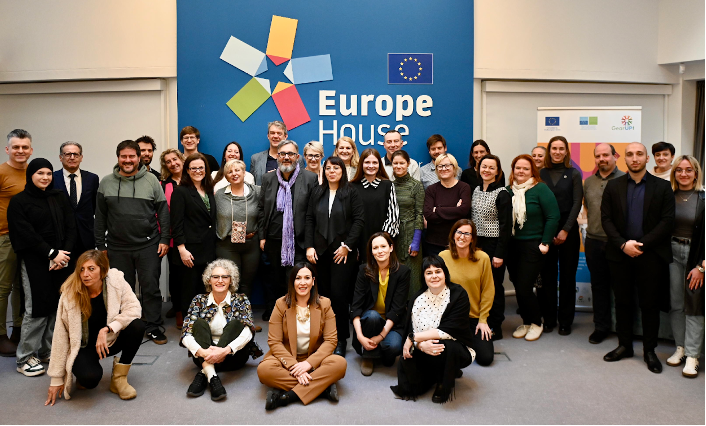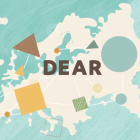Global Citizenship Education in the Western Balkans
News details

Global Citizenship Education can be a powerful tool to support peace and reconciliation in war-torn communities. The violent dissolution of Yugoslavia in the early nineties left deep scars in the social, institutional, political, and economic fabric of the whole region. Even those born after the war grew up in an environment influenced by a war legacy. Peace education, which is an integral part of Global Citizenship Education approaches, continues to be essential to shape future generations committed to peace, dialogue, and cooperation.
This past March, the DEAR project “GEAR UP!” gathered partners in Sarajevo to explore the role of Global Citizenship Education (GCE) in shaping peaceful future generations with an expanded understanding of the challenges in their own regions, the EU, and the connections with global issues.
The strategic and policy framework of the event was the EU Strategy for the Adriatic Ionian Region (EUSAIR), which brings together some EU Member States (Croatia, Greece, Italy and Slovenia) with partner Western Balkan countries (Albania, Bosnia and Herzegovina- BiH, Montenegro, North Macedonia and Serbia) and San Marino. EUSAIR’ governing strategy is grounded on core values of peace, dialogue, inclusion, solidarity, cooperation, cohesion as well as environmental protection as shared duties, and therefore provide a strong commitment in line with Global Citizenship Education approaches around the Adriatic.
Youth engagement for Peace
At the Sarajevo conference, youth organisations from the Balkans played a central role in the discussions, led by the Adriatic Ionian Youth Network (AIYN). The EUSAIR Youth Council, launched in 2024 as an independent advisory body, was described as a platform to build a more just, peaceful, tolerant, inclusive, and sustainable Adriatic Ionian Region.
The UN Representative in Bosnia and Herzegovina (BiH) and a representative from the European Commission’s DG Regio both highlighted the value of multi-level and multi-actor cooperation for mutual learning for sustainable development, and the important role of youth. The UN Representative stated: “For youth engagement to help mainstream sustainable development goals, we have to shift our perspective from seeing them as passive recipients of decisions, to letting them actively participate at the tables where the decisions are taken.”
Some examples were presented as interesting efforts to promote GCE, peace as well as youth engagement. The initiative "Let's Debate Change 2025" connects local authorities and active young citizens in four cities particularly hit by the war - Čapljina, Konjic, Mostar, and Prijedor. High school students discuss democracy, human rights, and sustainability through local debate clubs. They focus on building critical thinking and public speaking skills to present observations, conclusions, and proposed solutions to City Councils and Assemblies. Six initiatives that address local challenges and encourage democratic participation have already been launched by the young participants.
Sustainable Development Goal (SDG) 4.7, which highlights the need for “education for [the] promotion of a culture of peace and non-violence, global citizenship, and appreciation of cultural diversity…” was very much in the focus. For example, UNESCO has been working with young people in BiH since 2023 to build trust, intercultural dialogue, and cultural diversity. They are working on skills that are best developed through GCE: skills to address key conflict drivers such as hate speech, divisive narratives, negative gender norms, and the lack of reconciliation in the region.
The coordinator of another DEAR project, “Connect for Global Change”, showed how they are successfully using GCE methodologies to engage young people for sustainable development in EU Member States.
The Adriatic Ionian Euroregion, the Marche Region in Italy, the Global Education Network Europe (GENE) and the Association of European Border Regions (AEBR) were among the many organisations highlighting the values of diversity, responsibility, and sustainability and their importance to promote social change. The stage has been set for continued collaboration ahead of the next GEAR UP! European seminar scheduled in Barcelona on 18 November.

Log in with your EU Login account to post or comment on the platform.